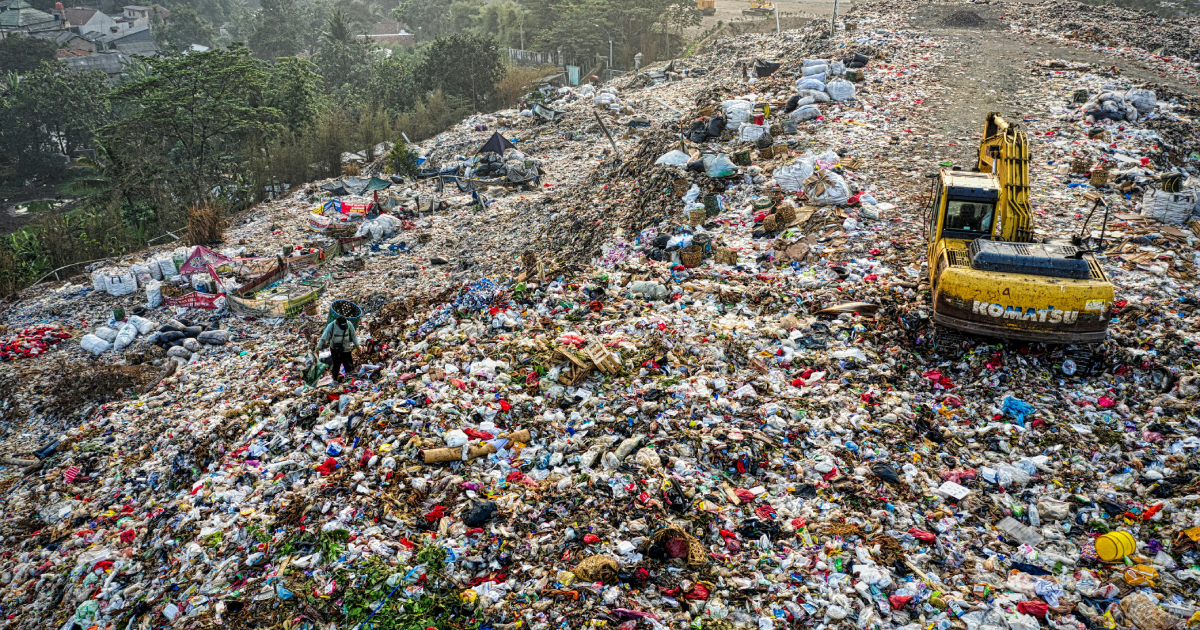The Keys to Making Sustainable Change

By Mark Seavy
While sustainability is top of mind for many consumers, there remains a sizeable gap in getting them to buy eco-conscious products.
That’s particularly true among key Gen Z consumers, where 82% of those surveyed said sustainability is important, but only 28% make the change [to sustainable products], Tamara Sender, Associate Director of Fashion and Retail at the research firm Mintel, said last week at the Products of Change Conference 2025 in London, U.K.
As a result, more ground must be covered in convincing consumers and companies to adopt recycled plastics and fibers, reduce carbon emissions, and put environmental concerns on equal footing with price, quality, and brand, executives at the conference said.
Yet, at the same time, 60 years of awareness and exposure to sustainability reshaped consumer expectations, the executives said.
Music artist Billie Eilish, for example, has pushed to have her vinyl records made from recycled plastic, performed at festivals powered by solar panels, and worked with her label, Universal Music Groups, to recycle unsold merchandise from her concerts.
Universal’s Bravado Division is working with Eilish to transfer 400,000 t-shirts and other items stored at a warehouse in Nashville, TN, to a recycling facility operated by Hallotex in Tangier, Morrocco. The merchandise is expected to be recycled into 280,000 products. Deadstock like concert t-shirts can’t be resold in stores and instead often ends up in landfills or in countries like Pakistan, Kenya, and India where textile plants harvest used clothing for raw materials.
“Typically this stuff also gets donated to Goodwill, but they don’t want that much, especially if it has a band name,” Bravado President Matt Young told Fast Company. “Some artists may want it destroyed, or a sale can be done on a website, which is usually the first wave of defense.”
The keys to capturing consumer attention are being transparent about the recycling process and making circular services like repair, repurposing, and reselling easier to access, Sender said. And companies new to apparel are entering the business with a sustainability plan in place.
The Nuna brand, best known for its high-end baby strollers, launched a 20-piece “Wardrobe” collection (two- and one-piece sets, socks, cashmere coats, and other items) last week designed for infants and their mothers. The collection is made from Supima cotton harvested in the U.S. and meets ethical and environmental standards set by the Supima AQRe (Authenticity, Quality, Responsibility) Project, which provides end-to-end traceability and product verification. The apparel also meets OKEO-Tex standards, which confirm collections have passed safety tests for the presence of harmful substances.
“Whether these [attributes] are on the check list for consumers remains up to the individual,” said Whitney Grant, Head of Apparel at Nuna. “People are coming to expect some sort of sustainable or ethical practice with what they buy. There are those consumers that will search that first and then there are those who go to the brand and then say they are glad it has sustainability. It is more of a split.”
Additionally, many companies and brands are adopting recycled packaging and materials to achieve these sustainability goals.
Retailer Tesco, for example, follows U.K. packaging and preferred materials guidelines as well as its own mandates that dictate packaging be recyclable, that sustainably sourced paper and cardboard is used, and that plastic packaging be reduced, said Paul Earnshaw, Lead Packaging Manager at the chain. RDP Creative, meanwhile, removed single-use plastic from more than 95% of its products. The company develops branded promotional products, including Chiquita and Stitch backpacks, Paddington mugs, and Harry Potter/Krispy Kreme key rings. RDP also cut its carbon footprint by redesigning carton containers for drink cups to accommodate 80 pieces against 36 previously, CEO Wendy Mather said.
Regardless of the approach taken, there has been success in companies focusing on sustainability. The apparel resale platform ThredUp, for example, last week reported Q3 revenue was up 33.6% from a year earlier to reach $82.2 million. That increase came as orders rose 37%. The number of active buyers jumped 25.6% to 1.6 million. Sales for the year are forecast to rise 18% to $307-$309 million.
“What we’re seeing is the premium brands out there are the ones that we’re seeing have the fastest growth [on the platform],” CEO James Reinhart said, citing Vuori, Farm Rio and Mac Duggal. “Those are all brands that I think are hitting the sweet spot of premium for us and we just want to get more of them.”




